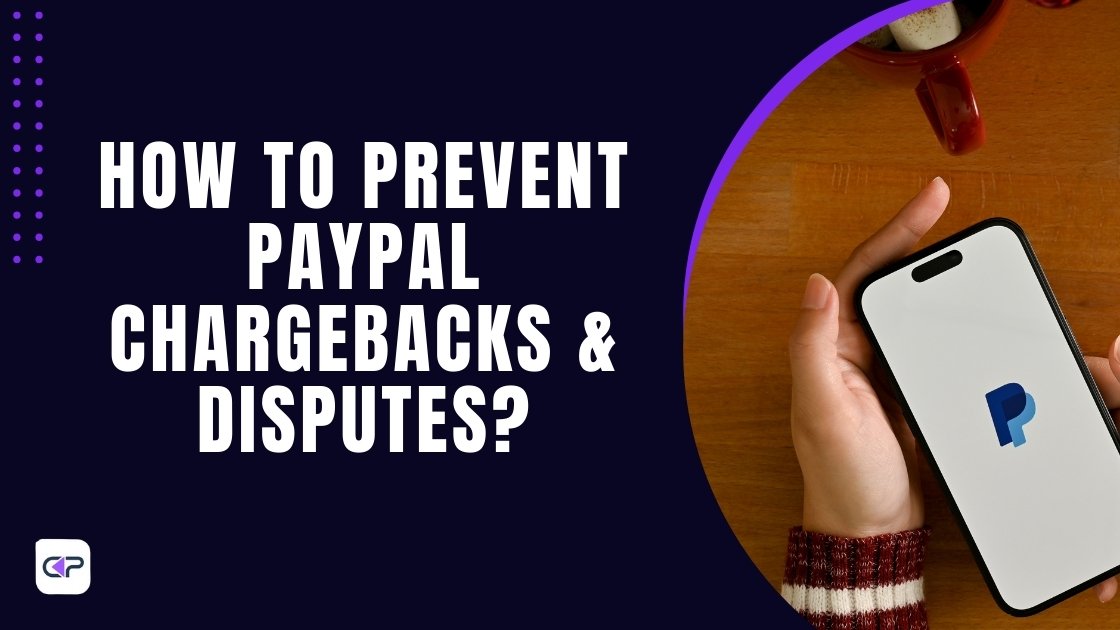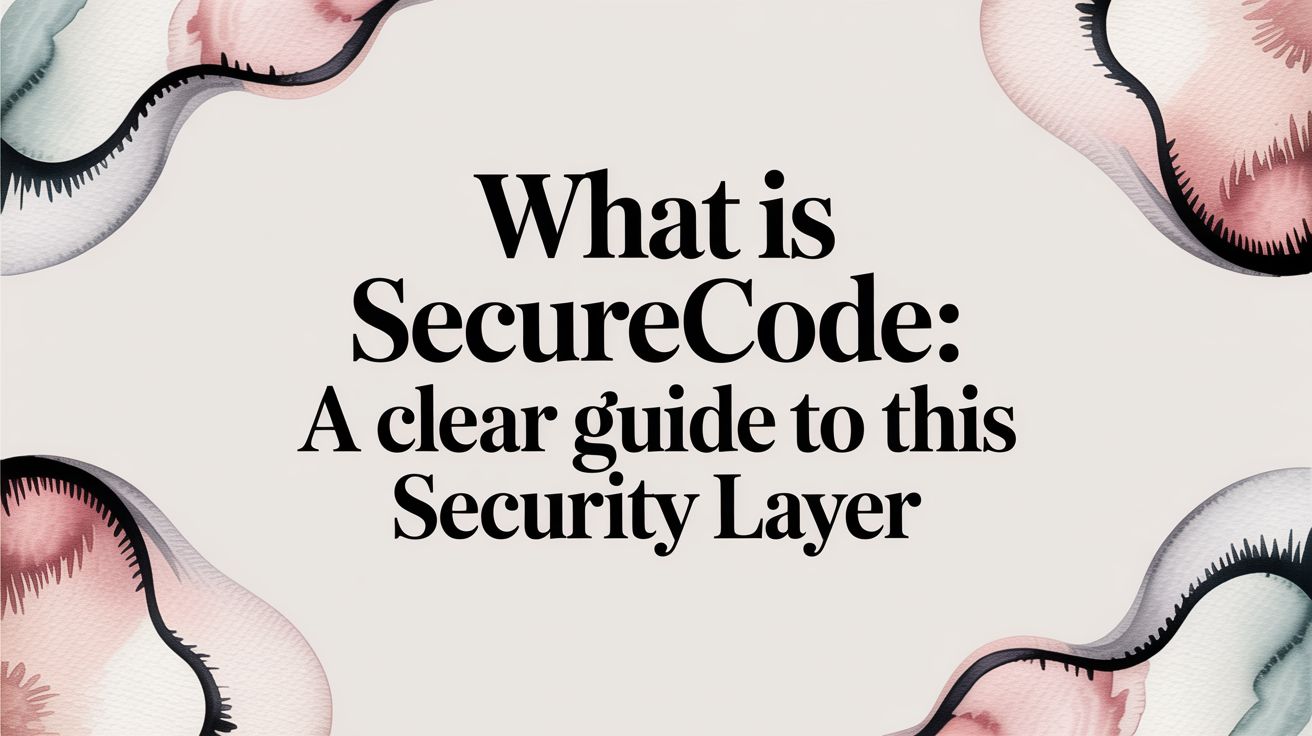
In online transactions, PayPal stands as a formidable force, facilitating millions of merchant accounts globally. With a staggering 35 million merchant accounts utilizing its platform, PayPal is a leading digital payment platform.
In 2022, it processed an impressive 22.2 billion transactions, averaging 51 transactions per account.
Unquestionably, PayPal has become the preferred choice for sellers, with 87.5 percent of buyers opting for its services for secure online transactions.
However, amid a rise in digital commerce, businesses mostly struggle to prevent PayPal chargebacks and disputes that impact businesses' financial stability.
Chargebacks, initiated by buyers, are a challenge for merchants, requiring strategic measures for prevention, management, and recovery.
Our guide facilitates sellers to avoid PayPal disputes, discussing expert strategies to protect businesses from fraudulent disputes.
From understanding chargebacks to implementing proactive defense mechanisms, we equip sellers with the knowledge and tools to mitigate PayPal chargebacks effectively.
What Is PayPal Chargeback?
A PayPal chargeback happens when a buyer disputes a PayPal transaction through their credit card company or issuing bank. This dispute arises from various reasons, including unauthorized transactions, dissatisfaction with the product or service, or claims of fraudulent activity.
The Impact on Sellers
Chargebacks can lead to financial loss, as the disputed amount is reversed, and sellers may incur additional fees. Moreover, excessive chargebacks can tarnish a seller's reputation and jeopardize their standing with PayPal.
Why Buyers File Chargebacks
Buyers may resort to chargebacks for legitimate concerns, such as not receiving the purchased item, receiving a damaged product, or unauthorized transactions on their account. However, there is also the risk of "friendly fraud," where buyers exploit the chargeback process without genuine cause.
How PayPal Handles Chargebacks
When a buyer files a chargeback, PayPal investigates the dispute. Sellers must usually provide evidence, such as proof of shipment or transaction details. PayPal then makes a decision based on the provided information.
12 Ways for Businesses to Prevent PayPal Chargebacks
Securing your business PayPal transactions demands a proactive approach to shield your business from the impact of chargebacks. In this section, we get into expert strategies to prevent PayPal chargebacks, ensuring stability and financial security for your business.
1. Automated AI Representment with Machine Learning
Automated AI Representment with Machine Learning stands out as an advanced strategy to proactively tackle PayPal chargebacks.
This approach involves deploying sophisticated algorithms and machine learning models to swiftly analyze and respond to chargeback disputes, automating the representment process for increased efficiency and accuracy.
One of the primary advantages is real-time detection, allowing businesses to identify transactions at risk of chargebacks and intervene before disputes escalate.
Machine Learning excels at recognizing patterns associated with friendly fraud or other common chargeback triggers, enabling businesses to address potential issues before they result in disputes.
Moreover, the technology offers customizable responses, adaptive decision-making, and a streamlined workflow.
To implement Automated AI Representment effectively, businesses should integrate these tools with payment systems, customize and calibrate machine learning models, continuously monitor for anomalies and potential fraud patterns, and ensure that their team is well-versed in utilizing AI tools for representment.
This strategy not only defends against chargebacks but proactively empowers businesses to navigate the ever-evolving landscape of online transactions.
2. Utilizing Dispute Management Systems
Another pivotal strategy against PayPal chargebacks is the adoption of Dispute Management Systems. These systems are designed to provide businesses with a centralized platform to manage and respond to chargeback disputes efficiently.
By leveraging Dispute Management Systems, businesses can streamline their dispute resolution processes. These systems typically offer features such as case tracking, automated response generation, and documentation management. With a user-friendly interface, businesses can navigate through the dispute resolution journey seamlessly, saving time and resources.
One key advantage of these systems is consolidating and organizing evidence for each dispute. This centralized approach ensures businesses have quick access to relevant information, enabling them to present a robust case when responding to chargebacks.
Furthermore, these systems often come with reporting and analytics tools, providing insights into chargeback trends and patterns.
Implementing Dispute Management Systems involves integration with existing payment and order processing systems. This integration facilitates the seamless flow of data and ensures that businesses can effectively manage and respond to chargeback disputes in real time. Regular updates and training for the team on utilizing these systems enhance their effectiveness in dispute resolution.
3. Seeking Help through Fraud or Chargeback Expert
In complex situations, PayPal chargebacks may necessitate seeking assistance from professionals well-versed in fraud prevention and chargeback resolution.
Engaging a Fraud or Chargeback Expert can provide businesses with valuable insights and tailored strategies to mitigate the risks associated with transaction disputes.
These experts are equipped with a deep understanding of the evolving tactics employed by fraudsters and possess the expertise to assess vulnerabilities in a business's current processes.
By conducting thorough assessments, they can identify areas that may be prone to chargebacks and recommend preventive measures.
A Fraud or Chargeback Expert can also assist in the development of customized policies and procedures tailored to the specific needs of a business.
This proactive approach ensures that the business is well-prepared to address potential chargeback issues before they escalate.
Moreover, these professionals are often abreast of industry best practices and can guide businesses in implementing the latest technologies and tools for fraud detection and chargeback prevention. Their insights can prove invaluable in staying ahead of emerging fraud trends.
Engaging a Fraud or Chargeback Expert involves collaboration in the analysis of historical chargeback data, current transaction processes, and customer interactions.
Based on this analysis, the expert can recommend adjustments to business practices, payment processes, and customer communication strategies to reduce the likelihood of chargebacks.
4. Meet Seller Protection Criteria
Ensuring eligibility for Seller Protection is a fundamental aspect of safeguarding your business against the impact of PayPal chargebacks. Seller Protection serves as a valuable shield, offering financial security and coverage for eligible transactions.
To meet Seller Protection criteria, it is essential to align your business practices with PayPal's specified guidelines.
This involves adhering to best practices in areas such as order fulfillment, transaction documentation, and customer communication.
Timely shipment and delivery, coupled with providing accurate details in transaction records, contribute significantly to meeting the eligibility criteria.
Understanding the specific requirements outlined by PayPal is crucial. Criteria often include delivering to the address provided in the transaction details, retaining proof of shipment, and responding promptly to customer inquiries.
By consistently meeting these criteria, businesses can enhance their chances of qualifying for Seller Protection.
Regularly reviewing and updating business processes to align with the evolving criteria set by PayPal is essential.
This proactive approach ensures that your business remains eligible for Seller Protection and can confidently navigate the challenges associated with chargebacks.
5. Avoid Fraudulent Transactions
A key strategy in preventing PayPal chargebacks is to proactively avoid fraudulent transactions. Identifying and mitigating the risk of fraud not only protects your business from financial loss but also contributes significantly to reducing chargeback incidents.
Employ robust verification measures during the transaction process.
This includes verifying customer identities, validating shipping addresses, and ensuring the legitimacy of payment information.
Implementing multi-factor authentication can add an extra layer of security, making it more challenging for fraudsters to exploit transactions.
Regularly monitor transaction patterns and be vigilant for any anomalies or suspicious activities. Unusual purchasing behavior, such as multiple high-value transactions within a short timeframe or orders deviating from typical customer preferences, may signal potential fraud.
Consider incorporating geolocation tracking to verify the physical location of the customer during a transaction. This additional layer of verification can help detect and prevent fraudulent transactions, especially those originating from unexpected locations.
6. Minimize Unauthorized Transactions Claims
Reducing the incidence of unauthorized transaction claims is a critical aspect of chargeback prevention. By implementing targeted measures and maintaining vigilance, businesses can minimize the risk associated with unauthorized transactions, a common trigger for chargebacks.
Encourage customers to strengthen their account security by using complex passwords and enabling multi-factor authentication. Robust authentication measures act as a deterrent to unauthorized access and transactions.
Keep your website and payment processing systems up-to-date with the latest security protocols. Regularly patch vulnerabilities, update encryption standards and employ the latest security technologies to fortify your defenses against unauthorized access.
Address customer inquiries and concerns promptly. Timely communication can prevent customers from resorting to filing chargebacks out of frustration or confusion. Provide clear channels for customer support and ensure that inquiries are resolved efficiently.
Utilize real-time transaction monitoring systems to identify and flag suspicious activities promptly. These systems can detect unusual transaction patterns or anomalies, allowing businesses to take immediate action to prevent unauthorized transactions.
7. Reduce Item Not Received Claims
Mitigating the risk of Item Not Received (INR) claims is paramount to prevent PayPal chargebacks. Proactive measures can be implemented to minimize the occurrence of such claims and foster a positive customer experience.
Ensure that customers have access to comprehensive shipping information. Communicate expected delivery times, shipping carriers, and tracking details. Transparent communication helps manage customer expectations and reduces the likelihood of INR claims.
Utilize tracking services and provide delivery confirmation for shipped items. This not only provides a layer of accountability but also serves as concrete evidence in case of a dispute. Many customers appreciate the ability to monitor the progress of their shipments in real-time.
For high-value transactions or sensitive items, consider implementing signature confirmation upon delivery. This adds an extra layer of security, ensuring that the recipient acknowledges receipt. It can be a valuable tool in disputing INR claims.
Establish realistic delivery timeframes and communicate them clearly during the purchasing process. Overly optimistic delivery estimates can lead to customer dissatisfaction and increase the likelihood of INR claims. Accurate expectations help manage customer perceptions.
Consider offering shipping insurance, especially for valuable or fragile items. Shipping insurance provides an additional layer of protection for both the business and the customer, reducing the financial impact in case of loss or damage during transit.
Respond promptly to customer inquiries regarding the status of their shipments. Timely and transparent communication can prevent customers from filing INR claims due to frustration or uncertainty. A proactive approach to customer service is crucial in reducing disputes.
8. Nullify Significantly Not As Described Dispute Claims
Effectively addressing Significantly Not As Described (SNAD) disputes is crucial for preventing chargebacks and maintaining customer satisfaction. Businesses can implement specific strategies to nullify the risk of SNAD claims, ensuring that the items received align with customer expectations.
Craft detailed and accurate product descriptions that clearly outline the features, specifications, and conditions of the items. Avoid misleading language or exaggerated claims that could contribute to customer dissatisfaction.
Include high-quality images that accurately represent the appearance and condition of the products. Multiple images from different angles provide customers with a comprehensive view, reducing misunderstandings.
For items where size matters, provide precise dimensions and measurements. This is particularly important for clothing, accessories, and other products where accurate sizing information is critical to customer satisfaction.
Transparently disclose any defects, imperfections, or potential issues with the product. Honest communication about the condition of the item helps manage customer expectations and reduces the risk of SNAD disputes.
Leverage customer reviews and ratings to provide additional insights into the product's quality and performance. Positive reviews can instill confidence while addressing any concerns raised in reviews helps build trust with potential buyers.
Implement a hassle-free return policy that clearly outlines the steps for returning items. A customer-friendly return process can encourage buyers to resolve issues directly with the seller rather than resorting to SNAD disputes.
Establish a stringent quality control process for inspecting and verifying products before shipment. This ensures that items meet the specified standards and reduces the likelihood of customers receiving products that deviate significantly from the descriptions.
9. Timely Communication with Buyers
Establishing and maintaining timely communication with buyers is a fundamental strategy to prevent PayPal chargebacks. Proactive and responsive communication can address customer concerns, clarify issues, and build trust throughout the transaction process.
Ensure that transaction details, including product descriptions, prices, and shipping information, are presented clearly during the purchasing process. Transparent communication at the outset sets the foundation for a positive buyer-seller relationship.
Keep buyers informed about the status of their orders by sending shipping notifications with tracking details. It not only enhances the overall customer experience but also reduces uncertainty and the likelihood of filing chargebacks due to perceived non-communication.
Respond promptly to buyer inquiries or concerns. Timely communication addresses potential issues before they escalate into disputes. A responsive approach demonstrates a commitment to customer satisfaction and can prevent chargebacks resulting from frustration or confusion.
In the event of shipping delays or backorders, inform buyers promptly. Setting realistic expectations and providing updates on any changes to the expected delivery timeline can mitigate dissatisfaction and reduce the risk of chargebacks.
Provide a dedicated customer support channel for buyers to reach out with questions or concerns. Communicate the available channels, such as email or a customer support hotline, and ensure that inquiries are addressed promptly.
Consider implementing live chat support for real-time communication. Live chat enables immediate responses to buyer inquiries, offering a convenient and efficient way to address concerns and build trust throughout the purchasing journey.
Communicate return and refund policies to buyers. Transparent policies help manage expectations and empower buyers to resolve issues directly with the seller, reducing the likelihood of filing chargebacks as a means of dispute resolution.
10. Be aware of PayPal Chargeback Scams
Vigilance is paramount in safeguarding your business against PayPal chargebacks stemming from fraudulent activities.
Being aware of PayPal chargeback scams is crucial. Stay informed about common tactics employed by scammers, such as false claims of unauthorized transactions or receiving significantly different items.
Regularly educate your team about these scams to enhance their ability to identify and thwart fraudulent chargeback attempts.
Implementing robust fraud detection measures and maintaining a heightened awareness of potential scams will fortify your defenses and reduce the risk of falling victim to fraudulent chargeback schemes.
11. Using AVS
AVS serves as a valuable tool in preventing chargebacks related to address discrepancies.
By integrating AVS into your payment processing system, you can confirm the authenticity of the billing address provided by the customer.
This additional layer of verification helps reduce the risk of chargebacks resulting from unauthorized transactions or disputes regarding the accuracy of the provided address.
Utilizing AVS contributes to a more secure transaction environment and enhances the overall reliability of your payment processing system.
12. Order Tracking Service to Avoid Disputes
Implementing an Order Tracking Service is instrumental in mitigating the risk of chargebacks related to Item Not Received (INR) claims.
By providing customers with real-time tracking information, businesses enhance transparency and accountability in the shipping process.
This proactive measure not only helps manage customer expectations but also serves as tangible evidence in case of disputes.
Leveraging an Order Tracking Service minimizes the likelihood of INR claims, fostering a secure and reliable transaction environment.
Manage & Prevent PayPal Chargebacks with ChargePay
ChargePay direct integration with PayPal empowers businesses to prevent and manage chargebacks with ease.
Through real-time transaction monitoring and advanced fraud detection, ChargePay helps identify potentially risky transactions before they lead to chargebacks, offering a proactive approach to maintaining a healthy PayPal account.
By reducing the frequency of disputes, helps secure revenue and build positive relations with customers and PayPal.
As an approved solution listed in the PayPal Business Directory, ChargePay is designed to streamline the entire dispute resolution process.
Automated workflows guide users through gathering evidence, submitting responses, and tracking cases, increasing the likelihood of successful chargeback reversals.
With ChargePay, PayPal merchants minimize chargeback losses and focus on growth without unexpected revenue hits.







.svg)







.svg)
.svg)
.svg)